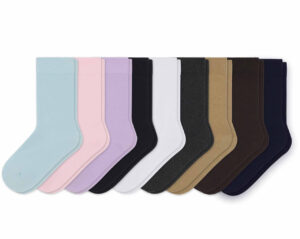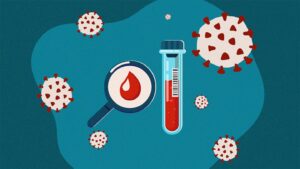Can Toothache Cause Headache?

Toothache is a common problem that affects many people at some point in their lives. It can be caused by a variety of factors, such as cavities, gum disease, a cracked tooth, or a broken filling. While a toothache is often limited to the mouth, it can also cause headaches in some people. In this article, we will examine the connection between toothache and headache and what can be done to alleviate any discomfort.
The Connection Between Toothache and Headache
Toothache can cause headaches by irritating the trigeminal nerve, which is one of the largest nerves in the head. This nerve provides sensation to the face and also helps control chewing, swallowing, and talking. When toothache stimulates the trigeminal nerve, it can cause headache pain that spreads to the temples, neck, and face.
Toothache can also cause headaches by increasing muscle tension in the jaw, neck, and face. This tension can lead to tension headaches, which are characterized by a tight band-like pressure around the head. Tension headaches are often accompanied by neck pain and can be made worse by stress, poor posture, and tooth clenching or grinding.
In addition to these direct effects, a toothache can also cause headaches by impacting sleep and increasing stress levels. When a toothache is severe, it can make it difficult to fall asleep or stay asleep, leading to sleep deprivation and fatigue. This lack of sleep and increased stress can then lead to headaches, making the problem even worse.
Symptoms of Toothache-Induced Headaches
There are several symptoms that can indicate that toothache is causing headaches. Some of the most common symptoms include:
- Pain in the jaw and face
- Sensitivity to touch
- Headaches in the temples, neck, or face
- Tenderness and pain when biting or chewing
- Muscle tension and pain in the jaw, neck, and face
Diagnosis and Treatment of Toothache-Induced Headaches
If you suspect that your toothache is causing headaches, it is important to seek the advice of a dentist or oral surgeon. They will be able to examine your mouth, take X-rays, and determine the cause of your toothache.
Once the cause of the toothache has been determined, your dentist or oral surgeon will recommend the best course of treatment. This may involve filling or replacing a damaged filling, treating gum disease, or extracting a damaged or infected tooth. In some cases, they may also recommend pain management techniques, such as ice packs, over-the-counter pain relievers, or prescription pain medication.
In addition to treating the underlying tooth problem, there are several things you can do to help alleviate toothache-induced headaches. These include practicing good posture, avoiding tooth clenching and grinding, and using a mouthguard at night. You can also try relaxation techniques, such as deep breathing or meditation, to help reduce stress and muscle tension.
Prevention of Toothache-Induced Headaches
The best way to prevent toothache-induced headaches is to maintain good oral hygiene and to have regular dental check-ups. Brushing your teeth twice a day and flossing daily can help prevent cavities and gum disease while avoiding hard or sticky foods can help protect your teeth from cracking or breaking. If you grind your teeth or have a habit of clenching your jaw, your dentist may recommend a mouthguard to protect your teeth and reduce muscle tension.
Finally
Toothache can cause headaches by irritating the trigeminal nerve, increasing muscle tension, and impacting sleep and stress levels. If you are experiencing headaches and suspect that your toothache may be the cause, it is important to seek the advice of a dentist or oral surgeon. They will be able to diagnose the problem and recommend the best course of treatment. To prevent toothache-induced headaches, it is important to maintain good oral hygiene, have regular dental check-ups, and reduce stress levels. With the right care and attention, you can enjoy a healthy smile and a headache-free life.
DISCLAIMER: THIS WEBSITE DOES NOT PROVIDE MEDICAL ADVICE
The information, including but not limited to, text, graphics, images, and other material contained on this website is for informational purposes only. No material on this site is intended to be a substitute for professional medical advice, diagnosis, or treatment. Always seek the advice of your physician or other qualified health care provider with any questions you may have regarding a medical condition or treatment before undertaking a new health care regimen, and never disregard professional medical advice or delay in seeking it because of something you have read on this website.





